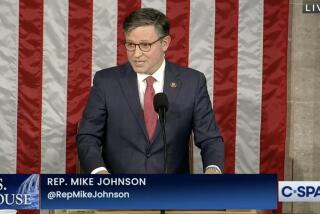A Grotesque Bloating
The military pension system, charges David A. Stockman, the director of the Office of Management and Budget, has become a “scandal,” perpetuated by a compliant Congress, insulated against reform by powerful pressure groups, defended by the Pentagon even at the cost of forgoing other national-security needs. Stockman, respond those whom his remarks instantly offended, ought to resign in shame even for suggesting that anything is amiss with the retirement program. In truth, scandal may be too harsh a description for what the military pension system has grown to be. Call it more accurately a fiscal horror, bad enough now but destined unless changed to get infinitely worse with each passing year.
The pension system began, of course, with the best of intentions. Its chief purpose was to provide deferred compensation to military professionals who traditionally were paid less than workers in the civilian sector. Its further purpose was to encourage early retirement as one way to obtain a more youthful fighting force. Beginning in the early 1970s, however, military pay began to be steadily boosted closer to civilian pay scales. Today they are nearly comparable. The pension rules, however, have been left unchanged.
Today, as for many years past, a member of the armed forces who retires after 20 years can begin drawing an annual pension equal to 50% of pay. After 30 years of service the pension is worth 75% of pay. The average retirement age in the military is 42.3 years. Most military retirees can thus expect to draw their pensions for more years than they served. That includes the retirees--a majority--who take up second careers. Cost-of-living increases regularly voted by Congress protect the purchasing power of these pensions. In addition, retirees receive health benefits and other privileges unavailable to civilians. And, when they reach 65, they are eligible for full Social Security benefits, with no reduction in their pensions.
A generous retirement plan is not necessarily a bad one, if it is affordable. The military pension system has ceased to be that. Next year it is budgeted for $18.3 billion, more than five times its cost in 1970. There is no trust fund to back up these pensions. They are an unfunded liability, which under present conditions stands to cost taxpayers at least $660 billion over the next 20 years. On average, a taxpayer in the private sector can expect lifetime pension payments of $37,015. A career military retiree on average will get $228,000. There is no fiscal logic to this system--and no social equity, either.
No one proposes to reduce pensions for current military retirees, or for those nearing retirement. But last year a Pentagon commission did recommend substantial changes in benefits for future retirees, including a formula change that would peg pensions to 35% of basic pay instead of 50%, with cost-of-living increases limited to three-fourths of the annual inflation rate. Others have proposed that pensions not begin until retirees reach the age of 55.
In the last two decades military pension costs have increased at a rate six times greater than the increase in overall defense spending. Within less than two decades 64% of the total payroll costs of the Defense Department will be committed to pensions. Military pensions, like those for civilian employees of the government, have become grotesquely bloated. It it time to begin making changes.
More to Read
Inside the business of entertainment
The Wide Shot brings you news, analysis and insights on everything from streaming wars to production — and what it all means for the future.
You may occasionally receive promotional content from the Los Angeles Times.










